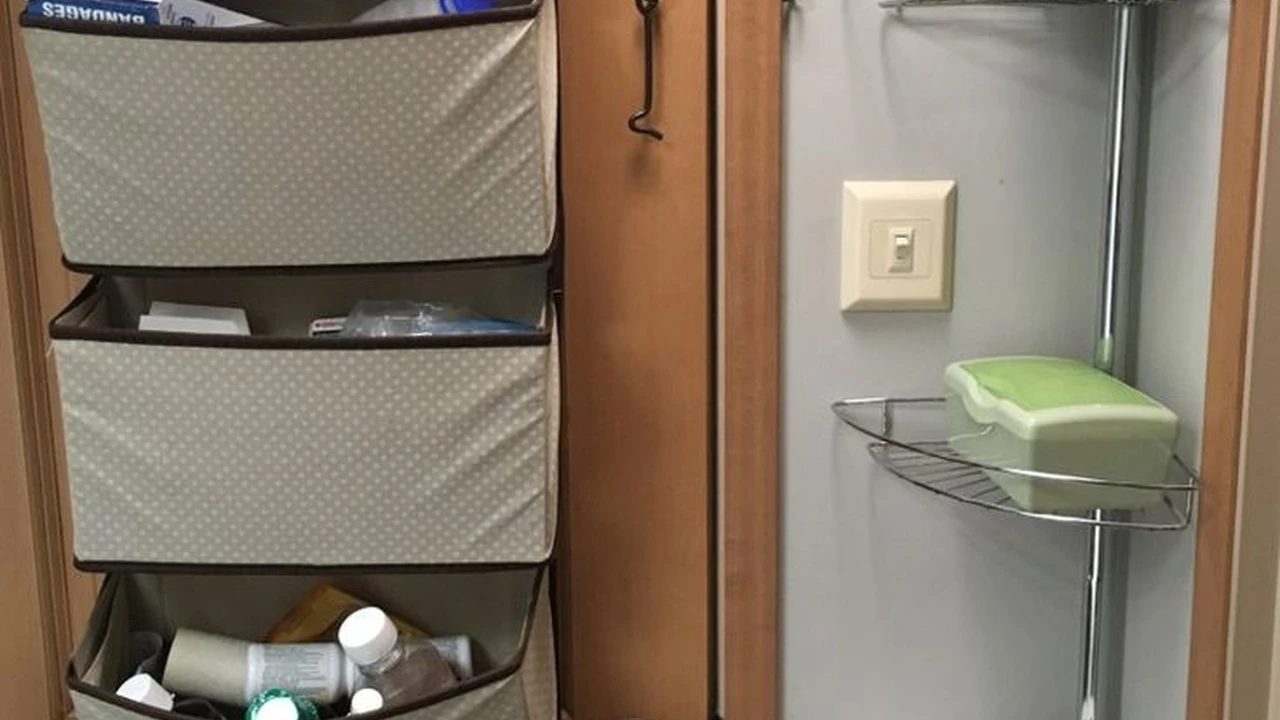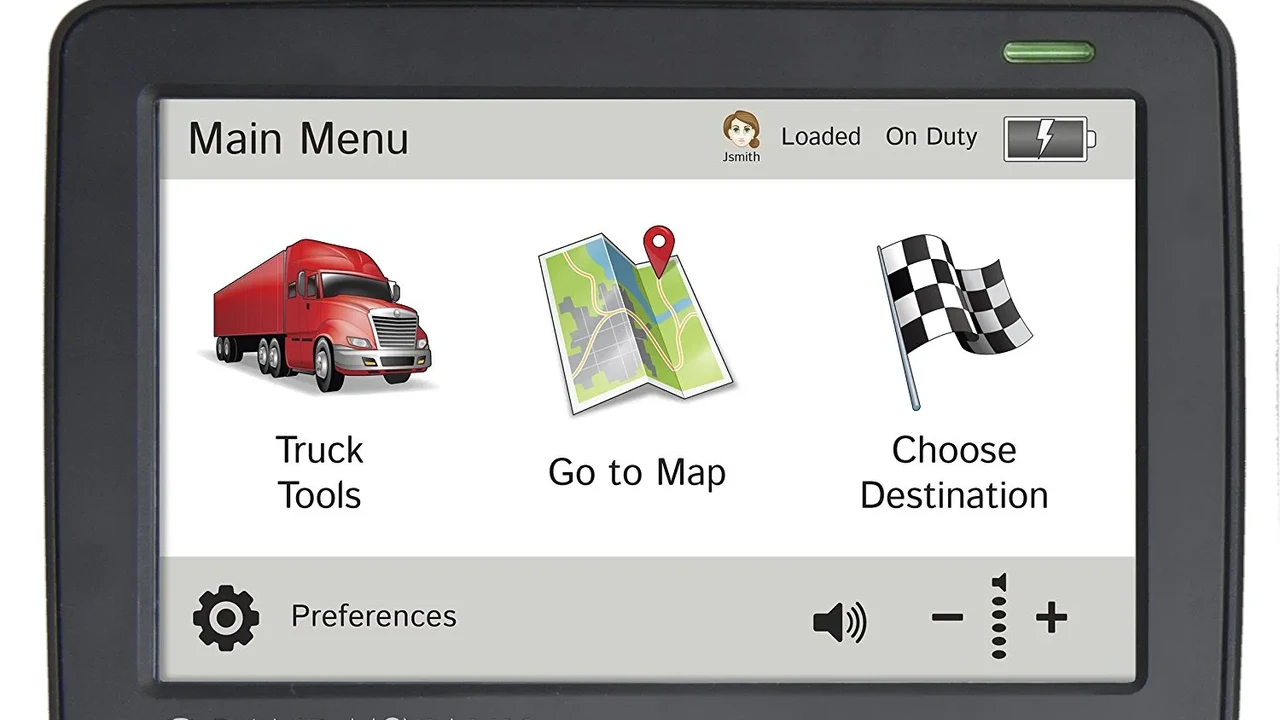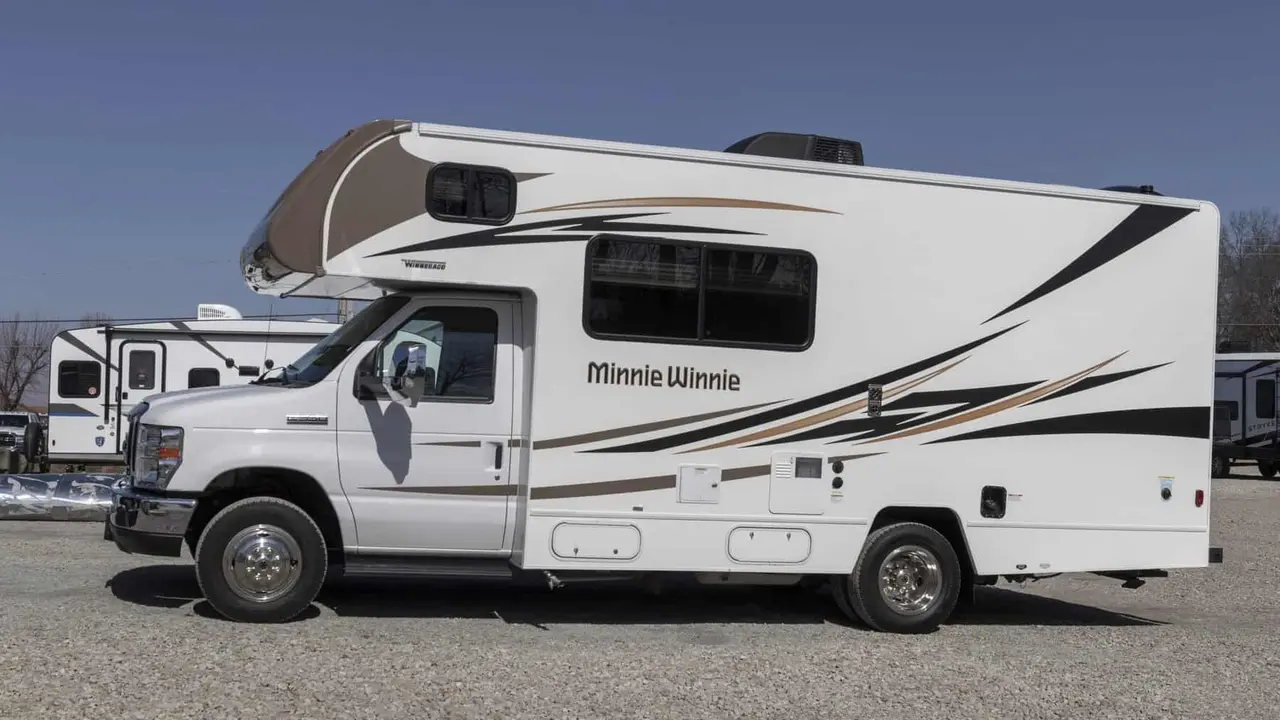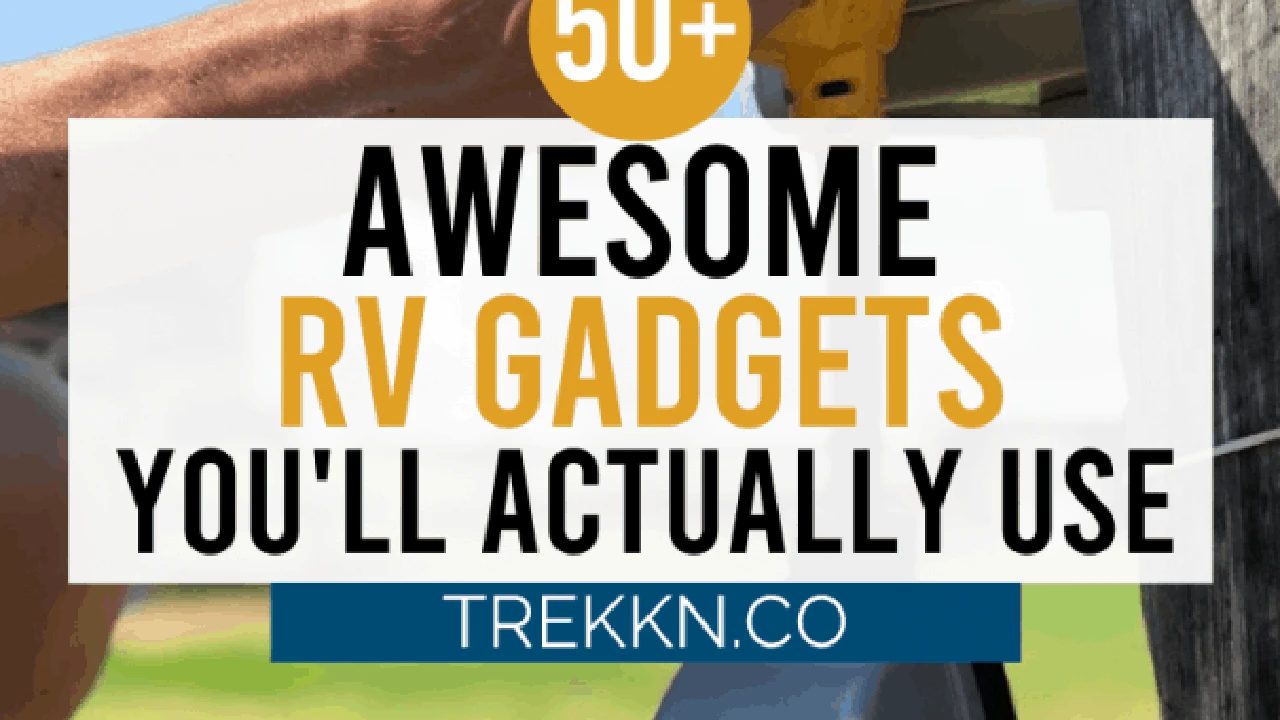Family-Friendly RV Destinations: Fun for All Ages
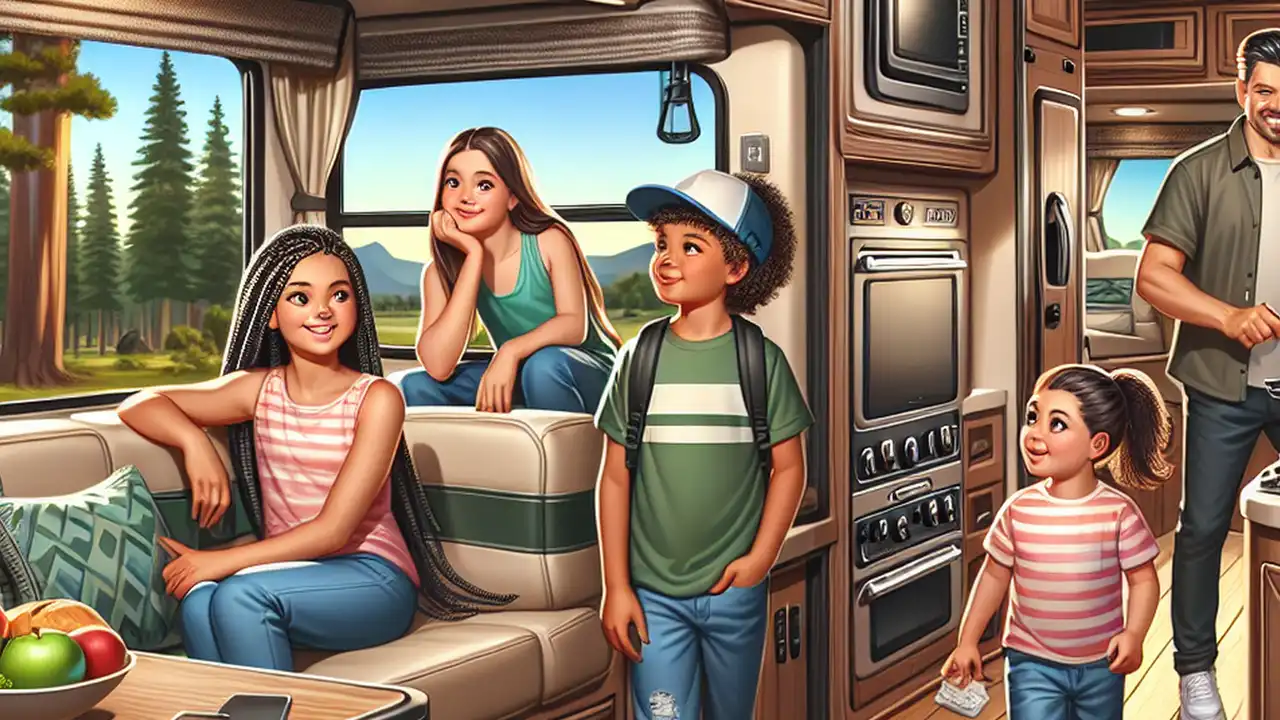
Planning Your RV Adventure The Ultimate Guide
So, you're dreaming of hitting the open road in your RV? Fantastic choice! RV travel offers unparalleled freedom and flexibility. But before you crank up the engine and point your rig towards the horizon, a little planning goes a long way. Let's dive into some essential tips to ensure your RV adventure is smooth, memorable, and filled with incredible experiences.
Choosing the Right RV for Your Needs
First things first: the RV itself. Are you a solo traveler, a couple, or a family? This will heavily influence the type of RV that suits you best. Class A motorhomes are the kings of the road, offering spacious living areas, full kitchens, and even onboard bathrooms. They're perfect for long-term travel and larger groups. Class B RVs, also known as camper vans, are more compact and fuel-efficient, making them ideal for solo adventurers or couples who prioritize maneuverability. Class C RVs strike a balance between size and comfort, often built on a van chassis with an over-cab sleeping area. They're a great option for families who want more space than a camper van but don't need the grandeur of a Class A.
Beyond the class, consider features like sleeping capacity, storage space, kitchen amenities, and bathroom facilities. Think about your typical travel style. Do you prefer boondocking (camping without hookups) or staying at campgrounds with full amenities? This will influence your needs for generators, water tanks, and waste management systems.
Budgeting Your RV Trip
RV travel can be surprisingly affordable, but it's crucial to create a realistic budget. Factor in the cost of fuel, campground fees, food, activities, and potential maintenance. Fuel is often the biggest expense, especially with larger RVs. Campground fees can range from free (for dispersed camping) to upwards of $100 per night for luxury resorts. Food costs can be minimized by cooking your own meals, but don't forget to budget for the occasional restaurant treat. Activities like hiking, biking, and visiting national parks can add up, so research entrance fees and plan accordingly.
Don't forget to include a contingency fund for unexpected repairs or emergencies. RVs, like any vehicle, can experience mechanical issues. A little extra cash can provide peace of mind and prevent a minor problem from derailing your entire trip.
Route Planning and Navigation
Gone are the days of relying solely on paper maps! Modern technology makes route planning a breeze. Apps like RV Trip Wizard, Google Maps, and AllStays offer RV-specific routing, taking into account bridge heights, weight restrictions, and low clearances. These apps can also help you find campgrounds, rest stops, and points of interest along your route.
Before you hit the road, research your chosen route for potential hazards like steep grades, narrow roads, and sharp turns. Consider breaking up long drives into shorter segments to avoid fatigue. And always have a backup plan in case of unexpected road closures or detours.
Essential RV Gear and Equipment
Equipping your RV with the right gear is essential for comfort, safety, and convenience. Here's a checklist of must-have items:
- Water Hose and Filter: For connecting to campground water sources and ensuring clean drinking water. Consider the Camco TastePURE Water Filter (around $20) for basic filtration.
- Sewer Hose and Fittings: For emptying your RV's waste tanks. The Thetford Titan RV Sewer Hose Kit (around $50) is a durable and reliable option.
- Leveling Blocks: To ensure your RV is level for comfortable living. Andersen Hitches Levelers (around $80) are easy to use and highly effective.
- Wheel Chocks: To prevent your RV from rolling. X-Chock Wheel Stabilizers (around $60) provide added security.
- Electrical Adapter: To connect to different types of campground electrical outlets. A 30-amp to 50-amp adapter (around $30) is a common need.
- First Aid Kit: For treating minor injuries and illnesses. A pre-packaged RV first aid kit (around $40) is a good starting point.
- Emergency Roadside Kit: Including jumper cables, a flashlight, flares, and basic tools.
- Portable Generator (Optional): For boondocking and providing power when hookups are unavailable. The Honda EU2200i generator (around $1000) is a quiet and reliable option.
- RV GPS: Designed specifically for RV navigation, taking into account size and weight restrictions. The Garmin RV 890 GPS Navigator (around $500) is a popular choice.
Staying Safe on the Road
Safety is paramount when traveling in an RV. Before each trip, thoroughly inspect your RV for any potential problems. Check tire pressure, fluid levels, brakes, and lights. Secure all loose items inside the RV to prevent them from shifting during travel.
When driving, be aware of your RV's size and weight. Allow for extra braking distance and wider turns. Avoid distractions and stay focused on the road. If you're towing a trailer, practice maneuvering in a safe area before hitting the highway.
Be mindful of weather conditions. Avoid driving in heavy rain, snow, or high winds. If you encounter severe weather, pull over to a safe location and wait it out.
RV Campground Etiquette
Respectful behavior is essential in RV campgrounds. Be mindful of noise levels, especially during quiet hours. Keep your campsite clean and tidy. Dispose of trash properly and avoid leaving food out that could attract animals.
Respect your neighbors' privacy. Avoid walking through their campsites and keep your pets on a leash. Follow campground rules and regulations, and be courteous to campground staff.
Top RV Travel Destinations Across America
America is a treasure trove of stunning landscapes and captivating destinations, perfect for exploring in your RV. Here are a few of the most popular and highly recommended RV travel destinations:
Yellowstone National Park Wyoming Montana Idaho
Yellowstone, the world's first national park, is a geothermal wonderland with geysers, hot springs, and abundant wildlife. You can witness the eruption of Old Faithful, marvel at the Grand Prismatic Spring, and spot bison, elk, and even bears. The park offers numerous campgrounds for RVs, but reservations are highly recommended, especially during peak season.
Product Recommendation: For capturing the stunning landscapes of Yellowstone, consider the Sony Alpha 7 III camera (around $2000) with a versatile zoom lens. Its excellent low-light performance is perfect for capturing wildlife at dawn and dusk.
Grand Canyon National Park Arizona
The Grand Canyon is an awe-inspiring natural wonder, a vast and colorful chasm carved by the Colorado River. You can hike along the rim, take a mule ride to the bottom, or simply admire the breathtaking views. The park has several campgrounds for RVs, but reservations are essential.
Product Recommendation: To stay hydrated while exploring the Grand Canyon, invest in a Hydro Flask water bottle (around $40). Its double-walled vacuum insulation keeps drinks cold for hours.
Acadia National Park Maine
Acadia National Park offers a unique blend of rugged coastline, granite peaks, and lush forests. You can hike to the summit of Cadillac Mountain, explore the rocky beaches, and enjoy stunning ocean views. The park has several campgrounds for RVs, but reservations are highly recommended.
Product Recommendation: For comfortable hiking in Acadia, consider a pair of Merrell Moab 2 hiking boots (around $100). They offer excellent traction and support.
Zion National Park Utah
Zion National Park is a canyon carved by the Virgin River, with towering sandstone cliffs and emerald pools. You can hike the iconic Angels Landing trail (permit required), wade through The Narrows, or simply relax by the river. The park has several campgrounds for RVs, but reservations are essential.
Product Recommendation: For navigating the Virgin River in The Narrows, rent a pair of Neoprene socks and canyoneering shoes from a local outfitter (around $30 per day). They will protect your feet from the cold water and slippery rocks.
Great Smoky Mountains National Park North Carolina Tennessee
The Great Smoky Mountains National Park is a haven for nature lovers, with lush forests, cascading waterfalls, and panoramic mountain views. You can hike to the summit of Clingmans Dome, explore historic cabins, and spot black bears. The park has several campgrounds for RVs, but reservations are recommended.
Product Recommendation: To protect yourself from insects in the Smoky Mountains, use a DEET-based insect repellent (around $10). Ticks and mosquitoes can be prevalent in the area.
RV Maintenance Tips For a Trouble-Free Journey
Regular maintenance is crucial for keeping your RV in top condition and preventing costly repairs. Here are some essential maintenance tasks to perform before, during, and after your RV trips:
Pre-Trip Inspection
Before each trip, conduct a thorough inspection of your RV. Check tire pressure, fluid levels (oil, coolant, brake fluid, windshield washer fluid), and battery condition. Inspect the roof for any leaks or damage. Test all lights, including headlights, taillights, brake lights, and turn signals. Ensure that all appliances are functioning properly.
Tire Maintenance
Tires are a critical component of your RV's safety and performance. Check tire pressure regularly and inflate to the recommended level. Inspect tires for wear and tear, including cuts, bulges, and uneven tread wear. Rotate tires periodically to ensure even wear. Consider using tire covers to protect tires from sun damage when parked for extended periods.
Product Recommendation: Invest in a Tire Pressure Monitoring System (TPMS) (around $200) to monitor tire pressure and temperature in real-time. This can alert you to potential problems before they lead to a blowout.
Battery Maintenance
RV batteries power essential appliances and systems. Keep batteries clean and free of corrosion. Check battery water levels regularly and add distilled water as needed. Consider using a battery maintainer to keep batteries charged when the RV is not in use.
Product Recommendation: A NOCO Genius battery charger and maintainer (around $50) is a versatile tool for keeping your RV batteries in top condition.
Water System Maintenance
The RV water system requires regular maintenance to prevent leaks and ensure clean drinking water. Sanitize the water tank and lines periodically using a bleach solution. Inspect hoses and fittings for leaks and replace as needed. Drain the water heater and water lines before storing the RV for the winter.
Product Recommendation: Use a Camco water heater tank rinser (around $15) to remove sediment buildup from the bottom of the water heater tank.
Waste Management System Maintenance
The RV waste management system requires careful attention to prevent odors and clogs. Use RV-specific toilet paper and holding tank chemicals. Empty the black water tank when it is at least two-thirds full. Rinse the black water tank thoroughly after each emptying. Avoid dumping grease or food scraps down the drain.
Product Recommendation: Happy Campers Organic RV Holding Tank Treatment (around $30) is a highly effective and environmentally friendly way to control odors and prevent clogs in your RV holding tanks.
Roof Maintenance
The RV roof is exposed to the elements and requires regular inspection and maintenance. Clean the roof regularly to remove dirt and debris. Inspect the roof sealant for cracks or damage and reseal as needed. Consider applying a roof protectant to extend the life of the roof.
Product Recommendation: Use a Dicor self-leveling sealant (around $20) to repair cracks and leaks in your RV roof.
RV Cooking and Meal Planning on the Road
One of the joys of RV travel is the ability to cook your own meals and enjoy delicious food on the road. With a little planning and preparation, you can create healthy and satisfying meals in your RV kitchen.
Planning Your Meals
Before your trip, plan your meals for each day. Consider your dietary needs and preferences. Choose recipes that are easy to prepare in a small RV kitchen. Pack non-perishable ingredients and spices. Consider pre-chopping vegetables and marinating meats to save time on the road.
Essential RV Kitchen Equipment
Equipping your RV kitchen with the right tools is essential for successful cooking. Here are some must-have items:
- Portable Stove or Cooktop: If your RV doesn't have a built-in stove, a portable propane stove (around $50) is a great option.
- Pots and Pans: Choose lightweight and stackable pots and pans to save space.
- Cutting Board and Knives: A small cutting board and a sharp knife are essential for food preparation.
- Mixing Bowls and Measuring Cups: For baking and mixing ingredients.
- Utensils: Spatulas, spoons, tongs, and ladles.
- Can Opener and Bottle Opener: Don't forget these essentials!
- Storage Containers: To keep leftovers fresh and organized.
- Portable Grill (Optional): For grilling outdoors.
Easy RV Meal Ideas
Here are a few easy and delicious meal ideas for your RV adventures:
- One-Pot Pasta: Combine pasta, sauce, vegetables, and protein in a single pot and cook until the pasta is tender.
- Foil Packet Meals: Wrap meat, vegetables, and seasonings in foil packets and cook over a campfire or grill.
- Sandwiches and Wraps: Quick and easy for lunch or a light dinner.
- Salads: A refreshing and healthy option, especially during warm weather.
- Campfire Chili: A hearty and satisfying meal that's perfect for chilly evenings.
Saving Space in Your RV Kitchen
Space is at a premium in an RV kitchen. Here are some tips for saving space:
- Use Stackable Cookware: Stackable pots and pans take up less space than traditional cookware.
- Hang Utensils: Use hooks to hang utensils on the wall or inside cabinet doors.
- Store Food in Clear Containers: Clear containers make it easy to see what you have on hand.
- Use Collapsible Items: Collapsible bowls, strainers, and measuring cups save space when not in use.
- Maximize Vertical Space: Use shelves and organizers to maximize vertical space in cabinets and drawers.
Finding RV Parks and Campgrounds The Booking Process
Securing a campsite is a crucial part of planning your RV adventure. Here's a guide to finding and booking RV parks and campgrounds:
Types of RV Parks and Campgrounds
RV parks and campgrounds come in a variety of styles, from rustic and secluded to luxurious and amenity-rich. Here are a few common types:
- National Park Campgrounds: Located within national parks, these campgrounds offer access to stunning natural scenery and outdoor activities. Reservations are highly recommended, especially during peak season.
- State Park Campgrounds: Similar to national park campgrounds, but located within state parks.
- Private RV Parks: Privately owned and operated, these RV parks often offer a wider range of amenities than public campgrounds, such as swimming pools, laundry facilities, and Wi-Fi.
- KOA Campgrounds: A popular chain of RV parks known for their consistent quality and amenities.
- Boondocking (Dispersed Camping): Camping without hookups in designated areas, typically on public lands.
Online Resources for Finding RV Parks
Numerous online resources can help you find RV parks and campgrounds:
- Campendium: A comprehensive website and app with reviews, photos, and information on RV parks and campgrounds across the US.
- AllStays: A detailed database of RV parks, campgrounds, and other RV-related services.
- RV Parky: A user-friendly app with reviews and information on RV parks and campgrounds.
- Good Sam Club: A membership organization that offers discounts on RV parks and campgrounds.
- Freecampsites.net: A website dedicated to finding free camping locations.
The Booking Process
The booking process varies depending on the type of RV park or campground. National and state park campgrounds often require reservations well in advance, especially during peak season. Private RV parks may offer online booking or require phone reservations.
When booking a campsite, consider the size of your RV and the type of hookups you need. Check the campground's policies on pets, generators, and other restrictions. Be sure to read reviews from other RVers to get an idea of the campground's quality and amenities.
Understanding Campground Hookups
Campground hookups provide essential services for your RV. Here are the most common types of hookups:
- Water Hookup: Provides a connection to a potable water source.
- Electrical Hookup: Provides electricity to power your RV's appliances and systems. Common electrical hookups are 30-amp and 50-amp.
- Sewer Hookup: Provides a connection to a sewer system for emptying your RV's waste tanks.
- Cable TV Hookup: Provides access to cable television channels.
- Wi-Fi: Provides internet access.
Embracing the RV Lifestyle Benefits and Challenges
The RV lifestyle offers a unique blend of freedom, adventure, and connection with nature. However, it also comes with its own set of challenges. Let's explore the benefits and challenges of embracing the RV lifestyle:
Benefits of RV Travel
- Freedom and Flexibility: RV travel allows you to go where you want, when you want, without being tied to hotels or flights.
- Connection with Nature: RVing brings you closer to nature, allowing you to explore stunning landscapes and enjoy outdoor activities.
- Cost Savings: RV travel can be more affordable than traditional vacations, especially for families.
- Comfort and Convenience: You can bring your own home with you on the road, with all the comforts and conveniences you need.
- Community: The RV community is welcoming and supportive, with opportunities to connect with other travelers.
Challenges of RV Travel
- Maintenance and Repairs: RVs require regular maintenance and can experience unexpected repairs.
- Space Limitations: Living in a small space can be challenging, especially for families.
- Driving and Maneuvering: Driving and maneuvering a large RV requires skill and caution.
- Campground Availability: Finding and booking campsites can be difficult, especially during peak season.
- Unexpected Expenses: Unexpected expenses can arise, such as fuel costs, campground fees, and repairs.
Is the RV Lifestyle Right for You?
The RV lifestyle is not for everyone. It requires a certain degree of flexibility, resourcefulness, and a willingness to embrace the unexpected. If you are considering embracing the RV lifestyle, ask yourself the following questions:
- Are you comfortable living in a small space?
- Are you willing to perform regular maintenance on your RV?
- Are you comfortable driving and maneuvering a large vehicle?
- Are you flexible and adaptable to changing plans?
- Are you willing to embrace the unexpected challenges of RV travel?
If you answered yes to these questions, then the RV lifestyle may be a good fit for you. With careful planning and preparation, you can enjoy the freedom, adventure, and connection with nature that RV travel offers.
:max_bytes(150000):strip_icc()/277019-baked-pork-chops-with-cream-of-mushroom-soup-DDMFS-beauty-4x3-BG-7505-5762b731cf30447d9cbbbbbf387beafa.jpg)



